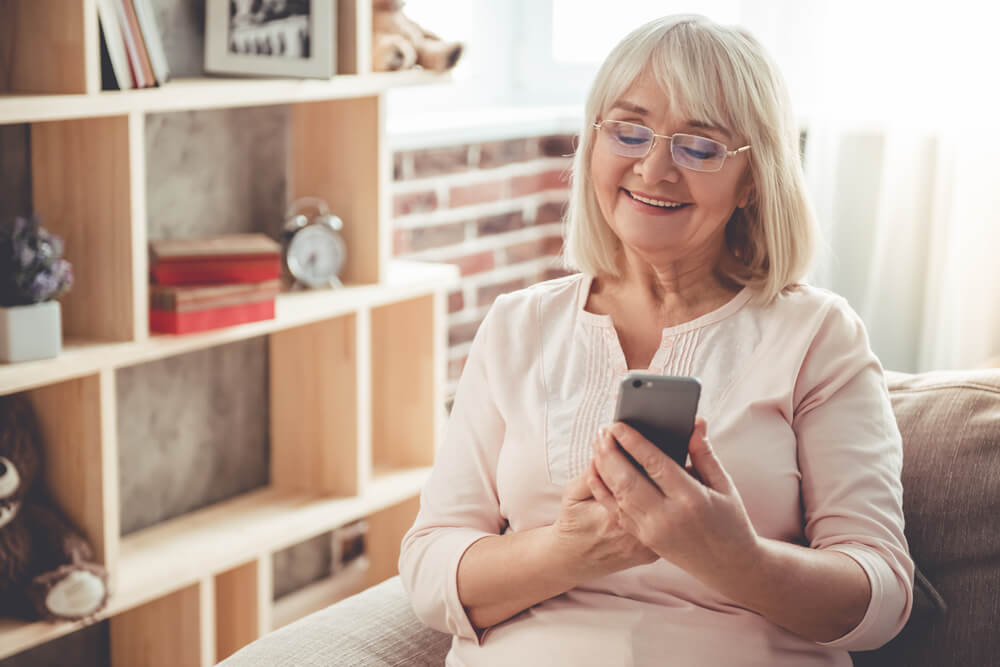
Good communication is the backbone of every great customer experience. Whether you’re signing up for health insurance, ordering a cheeseburger, or requesting information about a new product, clear communication is key. It’s also one of the easiest ways to highlight your commitment to customer service.
We all want to have our voices heard, but communication barriers often grow as we age. The good news? Communication skills are highly teachable. Learning how to communicate with the elderly effectively is a fantastic way to boost customer service offerings for every caller that dials your business. Once you nail these tips and techniques, you’ll find it easy to communicate with almost anyone!
Speak Clearly
Dealing with elderly customers often means adjusting the volume of your voice. Since many older people suffer from hearing loss, it’s tempting to speak loudly to them on the phone. While this strategy may be effective in some cases, it’s not always realistic to raise the volume of your voice. Instead, try lowering your register. As humans age, we lose our ability to hear higher frequencies, regardless of volume level. Even in our twenties, we begin struggling to hear hard consonant sounds like “h” “s” and “f.”
Whether you decide to speak more loudly or in a lower register, be careful to enunciate. Effective communication starts with clear pronunciation. This is especially important if you’re speaking to callers from all around the world. Effective communication with the elderly starts with clear conversation.
Show Respect
When working on skills for effective communication with the elderly, start by showing respect. Unfortunately, older folks are sometimes belittled, patronized, and talked down to by customer service agents. While they might communicate more slowly than other callers or need things repeated to them, the elderly certainly aren’t dumb. Put yourself in their shoes to better understand where they are coming from, then treat them how you will want to be treated when you’re their age.
In some cases, it can take longer than average to find a solution for an elderly caller. Polite, effective communication with the elderly may require patience, but if you maintain your commitment to being respectful, you’ll achieve better results. Use terms like “sir” and “ma’am” when appropriate, or stick with “Mr.” or “Mrs.” It’s a quick way to communicate your respect and competence while always moving the conversation forward.
Listen Effectively
Active listening skills are important for every call you answer, but they’re even more valuable when chatting with the elderly. Communicating with older people often requires you to make inferences, ask questions and listen as effectively as possible. This means employing active listening techniques.
Giving the caller your undivided attention is a great starting point. While you’re at it, demonstrate that you’re listening – small verbal comments like “I understand” and “go on” can do wonders to reassure the caller that you’re still on the line. Provide feedback on what you’re hearing, and don’t be afraid to ask clarifying questions. Elderly customers will be grateful for the opportunity to clearly communicate their concerns, issues, or questions.
Ask Questions
Clarifying questions can go a long way to ease communication with elderly callers. Some may have difficulty finding the right word or phrasing. Asking them to put it another way can help, as can using short, simple sentences when asking questions.
Older folks often need more time to process, so it’s important to remain sympathetic as you begin collecting more details and information. After listening, get affirmation that you have the full picture. If you’re struggling to understand, be upfront about your confusion. Repeat what was said if it helps the caller communicate their thoughts more effectively. Verifying information is a great way to help the caller see that you’re on their side.
Exercise Patience
Many older callers are lonely. They don’t mean to overshare or talk excessively, but if they don’t have many people at home to chat with, they can’t always help themselves when the opportunity arises. Patience can go a long way when learning how to communicate with older adults. Avoid cutting off their stories – it’ll lead to a much more pleasant conversation. You may be surprised at how much easier it is to problem solve once you’ve taken the time to fully listen to their issue.
Sometimes, we forget that elderly callers are, in fact, people. By maintaining a sense of empathy for the voice on the end of the line, it’s easier to exercise patience. There isn’t necessarily a one-size-fits-all approach for knowing how to talk to an elderly person. Instead, bring a fresh sense of relatability and patience to each conversation. You may find the results to be downright charming.
Your Partner in Quality Customer Service
Effective communication with the elderly won’t always be easy, but if you’re making a concerted effort to improve, seniors are sure to feel valued. They will know they can rely on you to be helpful when necessary, which instills loyalty.
At MAP Communications, we’ve spent more than 30 years perfecting the customer experience. If you’re eager to boost the effectiveness of your communication with elderly callers, we can help. Try our live answering service for free right now!
Here are some related articles you might be interested in:
How Your Business Can Communicate with Clients During Coronavirus
6 Customer Service Skills Every Successful Call Center Agent Should Have
How to Improve Customer Retention with After-Hours Answering Services


